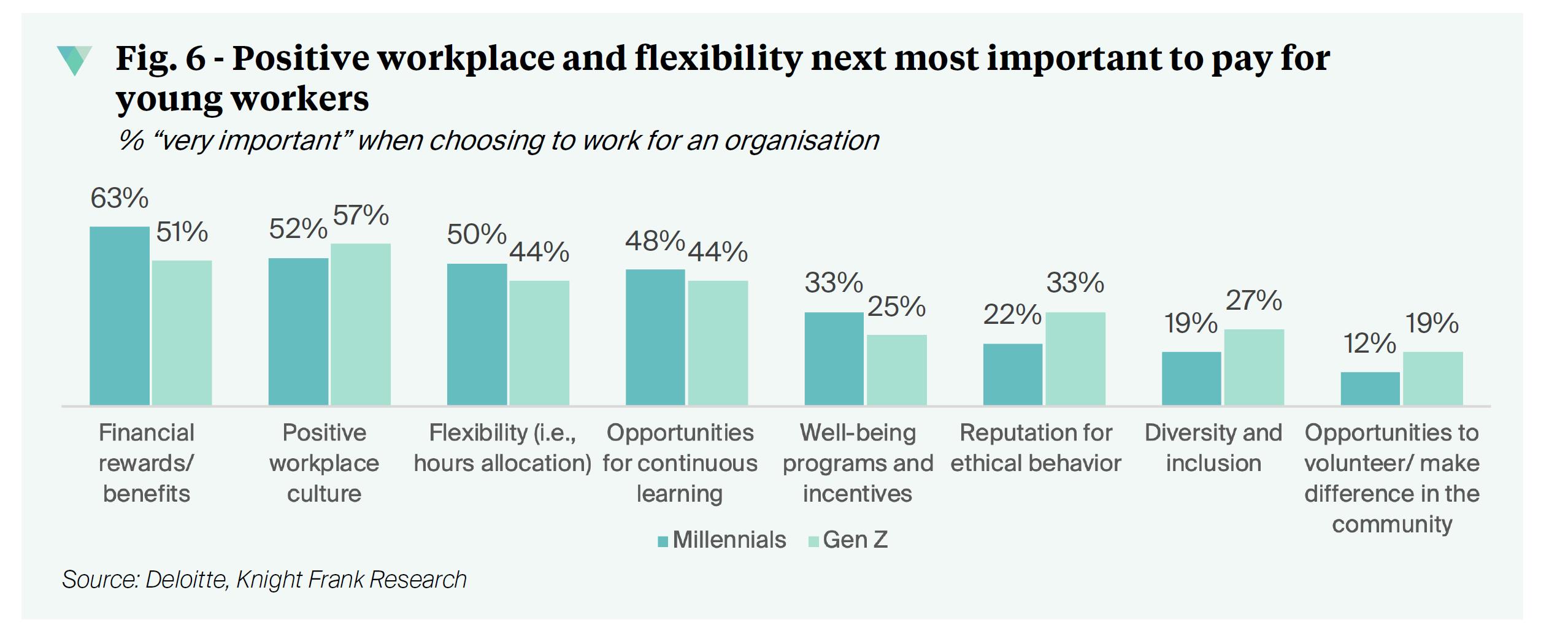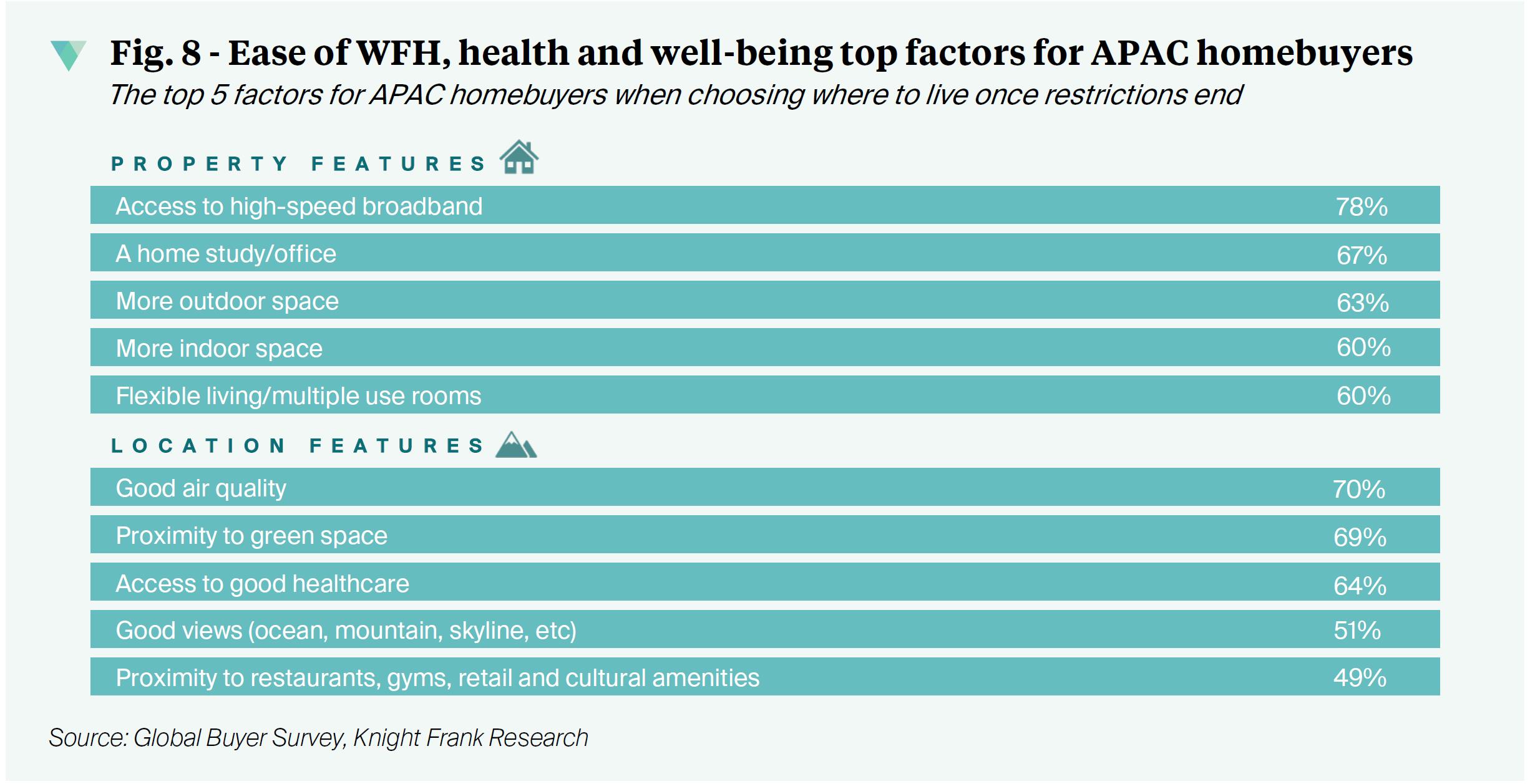War for talent shifts working dynamics
As offices move away from more traditional working behaviours, homebuyers’ preferences for properties are changing in the Asia Pacific region.
2 minutes to read
Post-Covid, as companies re-visit their international expansion strategies and cross-border business practices, workers are re-evaluating their personal purpose as well as individual and family priorities, with serious implications for their geographic and work preferences and travel habits.
Traditionally, greater financial rewards and benefits have been the primary way to win the war for talent but that has been changing. The Generation Z population (born between 1997-2012) have been pivoting more towards other soft factors such as positive workplace culture, flexibility, and opportunities for continuous learning.
In fact, some 57% of respondents from Generation Z said a positive workplace culture was very important when choosing to work for an organisation, with 44% citing flexibility, in terms of hours and location, as very important. Only financial rewards and benefits came higher on the list of requirements.

Some key gateway markets have done well in building corporate cultures that are attractive to prospective talent. For instance, Australia, New Zealand, Singapore, Japan, and South Korea have been ranked the top destinations for a tech job relocation in APAC, according to a survey conducted by relocate.me.
Residential trends changing
Developing South East Asia (SEA) markets are also making progress in this regard, with Malaysia and Thailand being sixth and seventh destinations respectively. However, increasing adoption of remote working may mean that people no longer need to live in high-cost locations to land jobs with companies based there.
Given that remote work opens companies up to hiring a completely new pool of talent, it results in a more distributed workforce.
Homebuyers’ preferences after restrictions lift in 2022 and beyond will skew towards attracting a more international workforce. This will have long-lasting impact on residential prices and rental trends across many gateway markets in the region.
Topping the property features requirements for life after Covid restrictions is access to high-speed broadband, with good air quality coming in at number one for location features.

City living still appealing
While urban centres continue to appeal to homebuyers and renters who are attracted by city living, less expensive neighbourhoods with larger apartments could see a lift in demand and price going forward, as the daily commute to work is no longer the norm.
Cities offering larger home sizes and better amenities will be a key factor in homebuying decisions in view of the great talent reshuffling around the region, as health and wellbeing, and flexible work arrangements are being prioritised by this group.
For more insights, you can download the full report here.